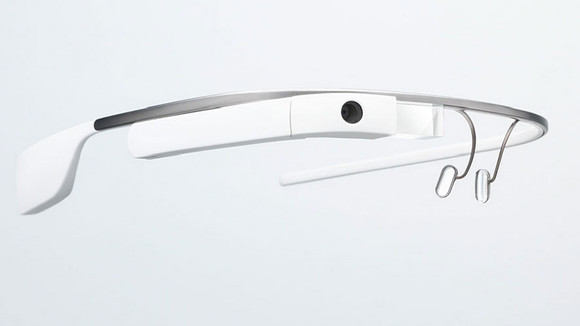Privacy Concerns over Google Glass

Google’s newest device is receiving unexpected backlash from the privacy-conscious public.
The experimental Explorer version of Google Glass was released to those willing to pay the hefty price of $1500 early this year. The head mounted smartphone-like computer resembles regular eyeglasses and can be operated hands-free. Google Glass can let you access GPS, the internet, email, and a plethora of apps with ease on the glass projected display, so where does the criticism come in?
The main concern comes with Google Glass’s ability to record video and audio without anyone knowing. With modern smartphones, one would have to make the obvious gesture of picking up their phone and pointing the camera at something or someone. With Google Glass, if someone is looking, they can already be recording.
To prevent violations of privacy, many have taken the initiative to ban Google Glass from their businesses. Dave Meinert of Seattle banned Google Glass from his 5 Point Café before it was even released. A group named Stop The Cyborgs offers free icons and art on their website that signify that Google Glass is banned in certain areas. Some casinos and theaters have even banned wearable interfaces altogether because of the possibility of cheating and recording. CNN even reports that an agitated stranger confronted two Glass users in a bakery in Florida. “He said we were being very intrusive and invading his sense of privacy and was altogether quite upset that we were there wearing Google Glass,” said one of the women.
CNN spoke with Larry Rosen, a psychologist who focuses on technology to shed light on the backlash. “People make a personal decision to check their smartphone or log in and check their social media accounts, but Google Glass is out of their control. They are not able to make a decision as to whether they want to be ‘on’ or ‘connected’ through someone else’s process, and they are concerned and unhappy that they do not have a say in the matter.”
Despite the fear that Google Glass users can be recording at any time, reviews of the device state that leaving Glass in record mode would kill the battery in about an hour.
Legally, Glass users have the same rights as photographers and can photograph anything in plain view. Plain view, however, does not include private property such as business. The ACLU also states that audio from video becomes complicated when taking into account certain states’ wiretapping laws.
Wearable interfaces like Google Glass are now being classified as driving distractions in Illinois. A woman in San Diego even received a ticket for driving with the Glass equipped. With the rise of popularity of wearable interfaces, more political and public controversy is expected.

Hello. I am a teen heartthrob, Kevin Maloney; a senior at St. John Vianney. I write for the Lancer’s Point. I enjoy writing about Canadian trivia, pizza,...
